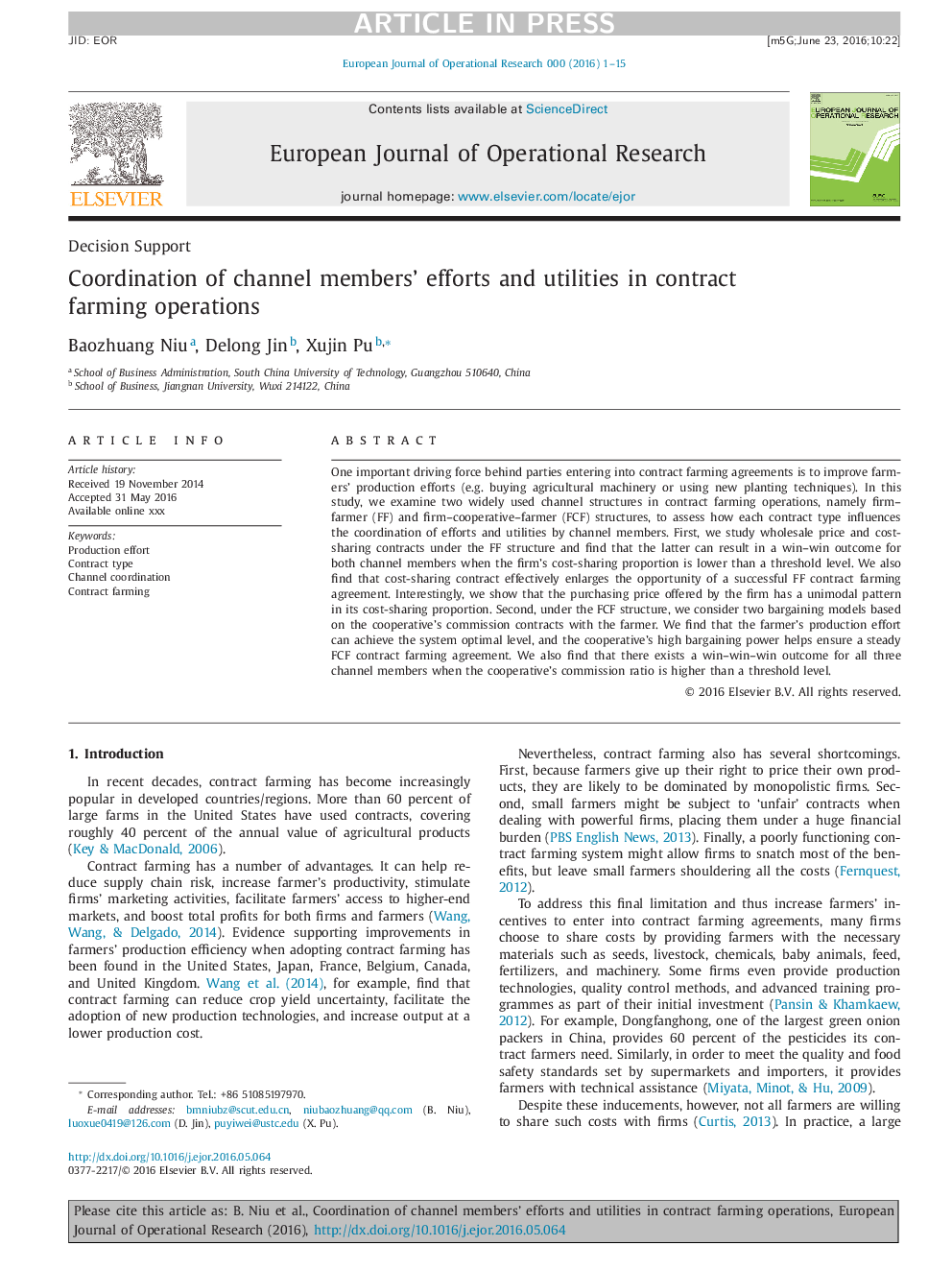| Article ID | Journal | Published Year | Pages | File Type |
|---|---|---|---|---|
| 4959819 | European Journal of Operational Research | 2016 | 15 Pages |
Abstract
One important driving force behind parties entering into contract farming agreements is to improve farmers' production efforts (e.g. buying agricultural machinery or using new planting techniques). In this study, we examine two widely used channel structures in contract farming operations, namely firm-farmer (FF) and firm-cooperative-farmer (FCF) structures, to assess how each contract type influences the coordination of efforts and utilities by channel members. First, we study wholesale price and cost-sharing contracts under the FF structure and find that the latter can result in a win-win outcome for both channel members when the firm's cost-sharing proportion is lower than a threshold level. We also find that cost-sharing contract effectively enlarges the opportunity of a successful FF contract farming agreement. Interestingly, we show that the purchasing price offered by the firm has a unimodal pattern in its cost-sharing proportion. Second, under the FCF structure, we consider two bargaining models based on the cooperative's commission contracts with the farmer. We find that the farmer's production effort can achieve the system optimal level, and the cooperative's high bargaining power helps ensure a steady FCF contract farming agreement. We also find that there exists a win-win-win outcome for all three channel members when the cooperative's commission ratio is higher than a threshold level.
Related Topics
Physical Sciences and Engineering
Computer Science
Computer Science (General)
Authors
Baozhuang Niu, Delong Jin, Xujin Pu,
